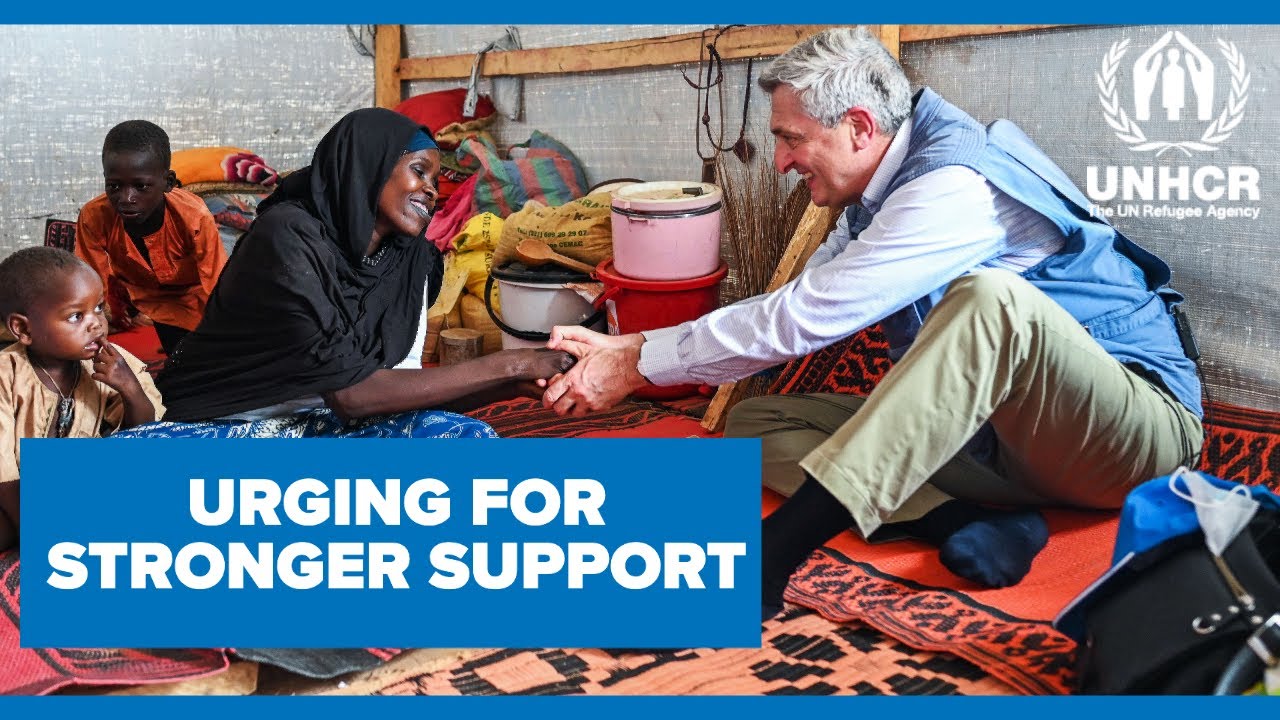UNHCR teams mobilize to limit disease outbreak in camps
UNHCR teams mobilize to limit disease outbreak in camps

GHAZI KOT CAMP, Pakistan, November 11 (UNHCR) - Responding to an outbreak of diarrhoea in Pakistan's earthquake-hit north, the UN refugee agency has deployed mobile teams to fix water- and sanitation-related problems in relief camps that have sprung up across the affected areas.
"Camps and makeshift shelters take people out of their natural living environment and can be very stressful," said UNHCR's Michael Zwack, who heads the UN's camp management cluster. "In crowded conditions and with few basic services, health problems can easily arise. We are trying to reach as many camps as possible to prevent the outbreak of diseases."
In organized camps in Balakot and Batagram, UNICEF and non-governmental agencies Oxfam and the Taraque Foundation have already set up water points, latrines and bathrooms. But hygiene standards are harder to ensure in hundreds of makeshift camps scattered across the remote mountainous region.
Efforts continue to map these spontaneous camps and identify their most pressing problems, including the need for clean drinking water, latrines and decongestion.
UNHCR and UNICEF are sending staff to show the Pakistan army, NGOs and the residents themselves how to decongest the camps and clean them up. "It's a simple, hands-on approach," said site planner Melesse Tegegne. "We cover site planning and camp management - to ensure there's enough space between tents, and that latrines are not too close to the tents or water points so as to avoid contamination."
Major Ashad Ali, a Pakistan army official overseeing the new Ghazi Kot camp near Mansehra, said, "We've requested UNHCR to come and advise us on the technical aspects of camp management and on operational issues like services. We're not moving people in until all the services are functioning, even on minimum basis."
Responding to the request, a UNHCR mobile team on Friday went shopping for wooden panels and other materials to set up latrines at the camp. By the end of the day, eight emergency latrines were ready at Ghazi Kot. Swiss NGO Terres des Hommes will take over longer-term construction while UNICEF will provide drinking water. Another 100 UNHCR tents are on their way to supplement the 98 already pitched in the camp.
The UNHCR team, which consists of 12 plumbers, carpenters, masons and electricians, is one of 20 quick-impact teams planned in the Mansehra, Muzaffarabad and Bagh areas. They will be supported by 12 camp management teams to sensitize people on hygiene and protection issues.
The refugee agency needs $18 million by the end of this month to fund its activities, including running the mobile teams, and to keep up the pace of aid delivery to affected areas. It has so far received only $6.8 million in cash and pledges.
By late Friday afternoon, the joint UNHCR/NATO airlift out of Turkey's Incirlik airbase had transported a total of more than 1,060 tonnes of UNHCR relief items on 83 separate sorties. Hundreds more tonnes have also been brought in by air from Dubai and Jordan and overland from Afghanistan and Iran.
By Babar Baloch in Ghazi Kot camp, Pakistan
with Vivian Tan in Islamabad









